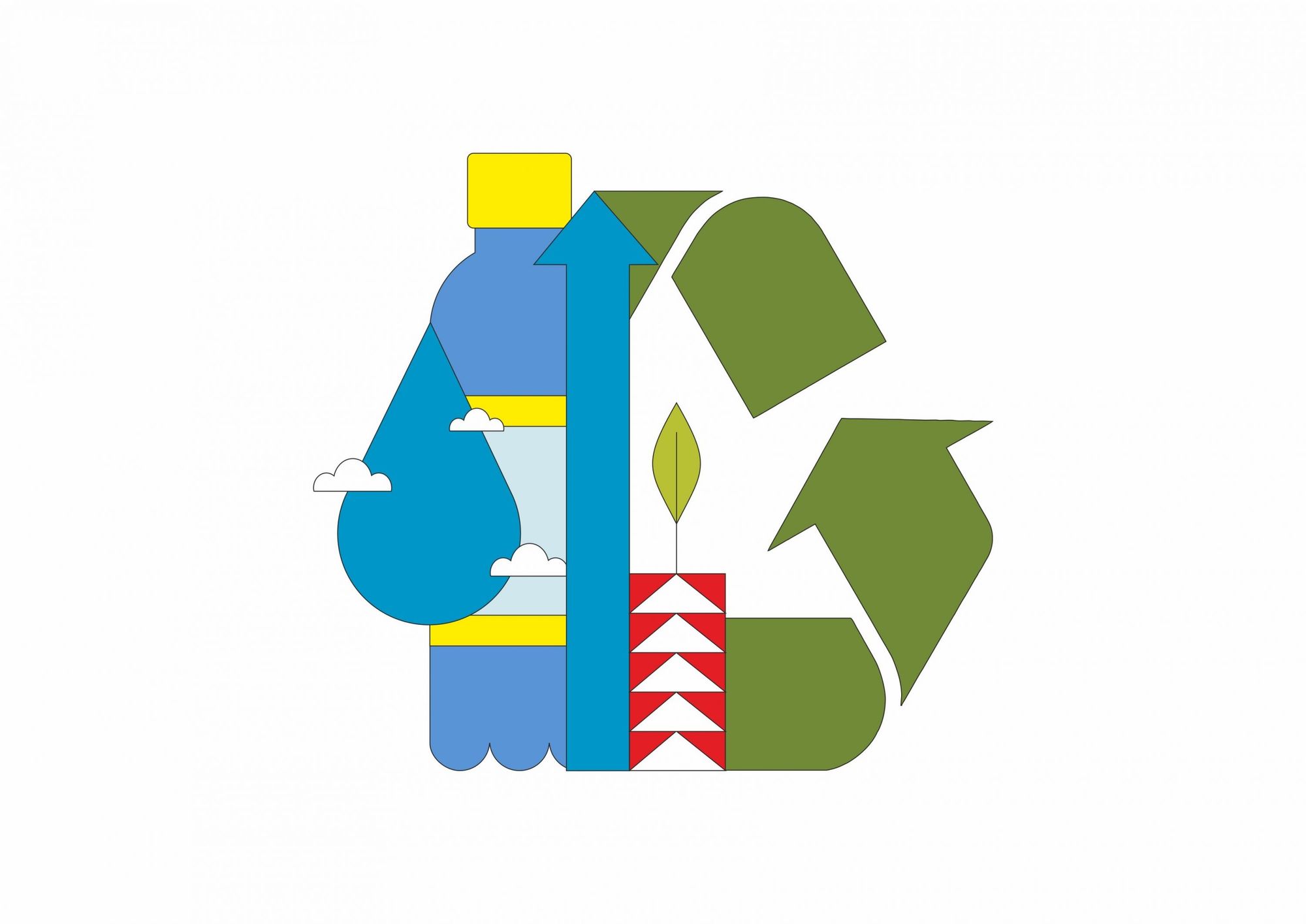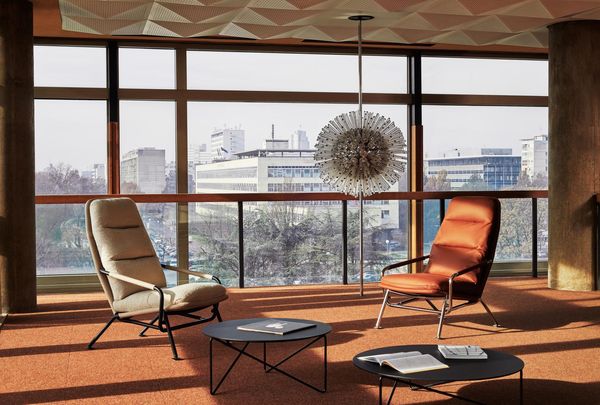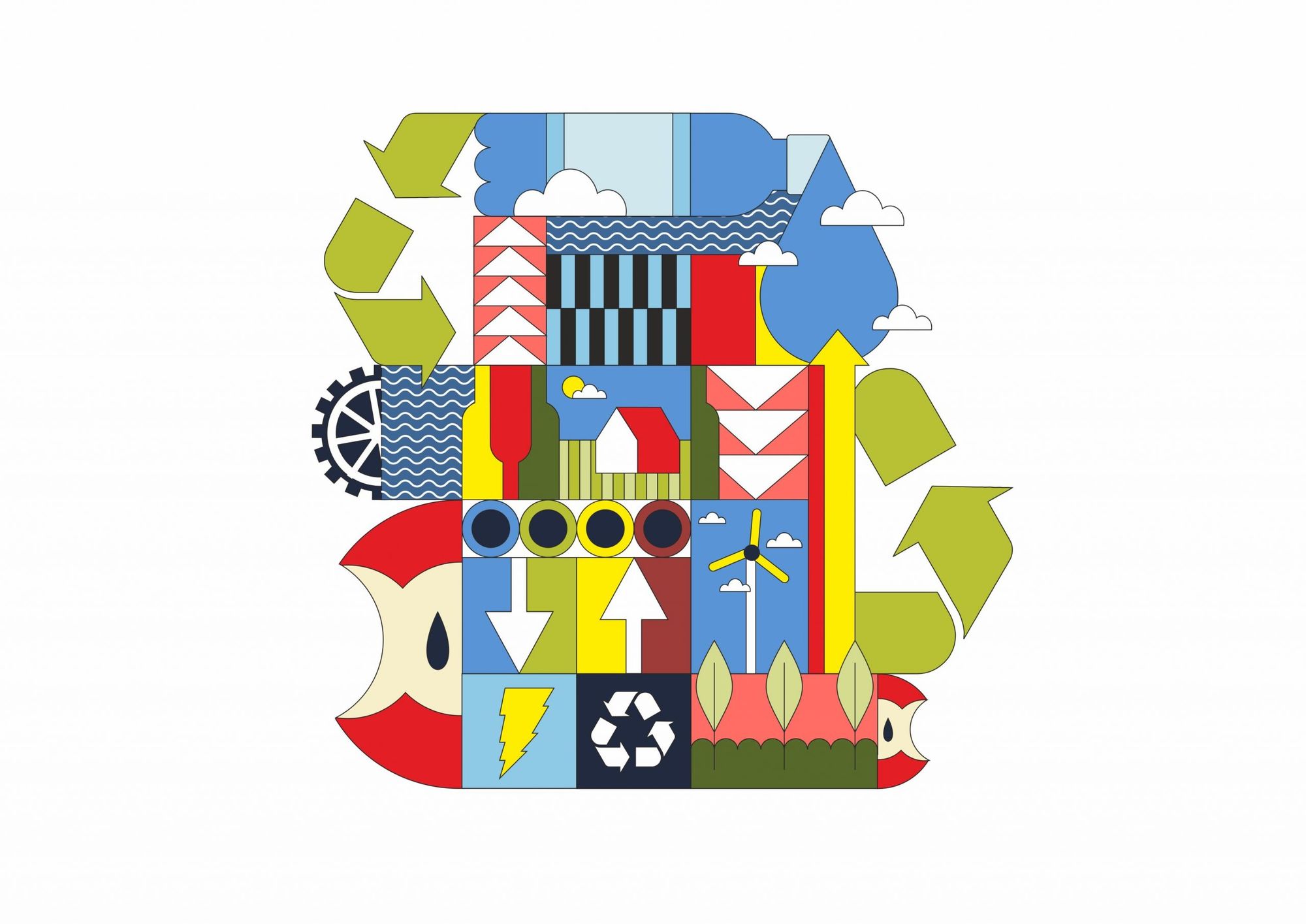We spoke to one of the greatest innovators of our time, Tom Szaky, about the “ass of the human environment” – waste management. Our interview with the founder of TerraCycle and Loop about the circular economy, the science of waste, and dirty nappies full of DNA.
In a previous interview, you said that waste management is one of the least innovative sectors. Yet rubbish has value, the story of a Coke can after it has been thrown away becomes a thrill. What do you think the reason for the lack of innovation is in this field?
I think because if you imagine that the IT sector is your brain, the whole industry is your body, right? Let’s say the pharmacy is your brain and the pharmaceutical sector is your immune system. Hollywood and the media are your eyes and ears. Then what is garbage? It’s your ass, right? Literally, yes. It’s the least desired exciting area for anyone to go into. When I lecture at universities, I usually ask the audience: has anyone here ever felt inspired to go and work in the garbage industry after university? There is not one hand that ever goes up. In some cultures, your parents would say that if you don’t study hard, you’ll end up working as a garbage man. It’s literally the bottom, because it’s not sexy, not exciting thus it doesn’t attract innovation. That’s sort of psychology because we are repulsed by garbage. What’s the purpose of a toilet? It’s to move our garbage or the human garbage away from us as fast as possible. That’s why toilets exist, so it’s not just repulsive, it’s also something we don’t want to think about, we want to get rid of it and leave it as far away as possible. I think, there’s a big psychological aspect. There are no courses at university on garbage. There are courses at university on the most esoteric bullshit like literature from dead languages spoken 1000 years ago. And yet one of the biggest topics in the world is garbage and there are no courses, no textbooks, no professors. It’s crazy exciting for me, because as an innovator or entrepreneur the topic is massive, and purposeful innovation is needed. There’s no one else thinking about it.
You described the whole psychological part of the topic, but if we go further, I have some friends who are working in the garbage industry in Hungary. There’s a huge amount of money ready to be invested in it. But if I take a closer look, they are not really the innovative type of guys. Even if they have been working in the sector for decades, there is not a strong will to innovate. What’s your opinion on this?
It’s also about the traditional business model that in the case of garbage and waste is simple. A need to get garbage away from you as cheaply as possible and then if there’s some value in your garbage, I will sort that out and sell it. That’s the simplified business model of garbage. If you enter the industry with that mentality, then you buy equipment that is very expensive. You must buy big, heavy garbage trucks to sort out the rubbish, at a cost of half a million dollars each. The infrastructure is incredibly expensive, and the profits are very low. The investment costs are high, and the margins are incredibly low, in which case innovation will not take off. It’s very difficult to make a change in an industry where most of your money is invested in equipment and not in research and development. How many people would such an industry attract? Everyone wants to be a Google programmer, that’s where the big money is, and no one is going to innovate in waste management because the high costs and low margins are hard to beat. We strive to make this industry sexy, our offices, our corporate culture looks like a cool tech company, but the lack of capital investment makes innovation difficult, and that makes the possibility of change more and more remote.
We hear the term ‘circular economy’ a thousand times these days, but we don’t really know what’s behind it. It sounds good, but it has no concrete meaning for the average person. How would you describe the concept of a circular economy? What does this concept look like in waste management?
The traditional definition of circular economy is you have to contrast it to a linear economy. A linear economy is to take it, make it, waste it. When the object is done, there’s no solution because I put it into a landfill, or we burn it and that’s linear. Circular Economy simply says that the output can then be collected and somehow put back as the input reducing the need to take. Recycling is an example, but it’s about how do you make the waste be the input again. Why it’s an important idea is that it reduces the requirement of extraction that is the most destructive force on the environment in the image of climate change, pollution, and deforestation. It’s important to note that circular economy is not intrinsic sustainability thus we could still destroy the planet even if we have a perfectly circular economy because to run something around the circle still takes energy and has an environmental cost. Less extraction is a good step, but it’s not a fundamental solution in the waste industry.

Your very famous statement that a zero-waste lifestyle is achievable. When I think about today, it’s only noon and I have already produced a lot of rubbish willy-nilly. How can a zero-waste world be achieved? What are the first steps towards this utopian goal?
The most important thing we can do for a zero-waste world is largely linked to the choices we make. Our environment is very complex and every choice we make affects it, whether we drive an electric car or a petrol car, eat meat or go vegan, have a small home, or a big house. But the simplest central element is to minimize our consumption and our purchases. First, we need to try to consume less, because let’s be honest with ourselves and think about what we need in our everyday lives to live and what we consume for pleasure. We need to consume enough to survive – I know I am a hypocrite on this issue, but we need to play with the idea.
Yes, and this idea goes against the whole consumer society on which our economy and civilization is currently based.
Fundamentally, the entire consumerist culture hates the concept of purchasing less. That’s why it’s difficult but nevertheless, that is the fundamental first step. The biggest question for humanity in the next 100 years is our relationship with the idea of purchasing. Because if we purchase at this rate, it doesn’t matter if it’s organic, if it’s circular, if it’s all the “eco-shit” because it will still destroy the world. We can console ourselves by saying that the vegan burger on our plate came from an organic farm, but if we don’t buy it, the farm could be a forest. We simply need to eat less and eat smarter, and only eat what we need. Once we can lower consumption the next question is, how do we make the consumption as low impact as possible? Instead of buying fruits and vegetables in plastic bags just put them in your shopping cart. Quality is also an issue, as you can buy ten poor-quality pens cheaply, or you can buy one expensive pen that will last longer in the office than its cheaper counterparts. Low quality always has a greater environmental impact on our world, but high quality can reduce consumption. An added benefit is that the packaging of high-quality products is more often recycled, making it more worthwhile to invest in such projects from a waste management perspective.
It is an interesting idea, and in this case, we can see that the problems of consumer society mentioned above are in the same boat as capitalism. In one of your interviews, you pointed out that Terra Cycle is essentially based on the concept of “mission driven capitalism”. Is this not a parallel reality?
There are two parts here. One is that what we do as an entity is focused on purpose and then followed by profit. Everything we do is about how does the environment become better? Or how does it help society? For example, we’ve donated almost $50 million through our recycling programs to charities because we want to try to show that you can do purposeful business and, in our universe, that works. Overall, the challenge is that if you see businesses in general, most of them are set up not as a purpose driven organization, but as a profit driven and that’s the vast majority. In that mentality, if you serve the God of profit then typically environment and society suffer damage. The mission driven capitalism is that a lot of companies are participating in our recycling programs because they feel it’s going to help their profit in the end. A cookie company will run a TerraCycle cookie wrapper recycling program if it shows them that more people will prefer their cookies than those of their competitors. A business can become better and better, but it cannot fundamentally reconstruct the issue of a profit driven appetite. At the end of the day, the citizen is the one voting for this and that’s why the most important thing is to vote with how we purchase. If you change what you want, then these companies will have to change what they produce and what they sell, otherwise, no one will buy it.

A lot of business leaders have said that they either have a sustainable business – or no business. The choice is simple, and the pressure is mounting, from consumers and governments alike. How do you see this process from the business side?
It’s interesting because I’ve been doing the business for 20 years and at the beginning of the journey, sustainability was not really a topic that most companies even had a department for. Then the pressure started to grow coming from the fact that the world started to experience the results of climate change. Companies started to think about sustainability, but usually the big ones as they have the resources to be able to invest in these sorts of departments. Medium sized and small companies even today may not have sustainability functions. Does a bar in Budapest have a sustainability officer? Probably not. They just care about making sure people come in, have a drink, and they can keep paying their staff. Global companies like Bayer or DuPont went through the process. When the process started, the most interesting thing was to view where the sustainability department is put in the company. In some cases, it was housed under the legal department, so law and sustainability came together. What does that mean? That means that the company views sustainability as a risk to be managed. Some companies put it under their communication staff like PR and marketing. Then they saw sustainability as something similar to a brand or a PR message. Finally, some CEOs decided to give sustainability its own department because they view it as a fundamental way to shift business. Most companies place sustainability in the PR or risk management department. In some cases, it’s emerging and it’s moving into its own independent functions but commercial still drives the decision. The last thing I would say is that there are two types of sustainability actions you can take. The easy ones are the ones that also help drive economic benefit. Make your truck efficient and you save money. The real important questions are the sustainability decisions that will hurt the company. When a company says we have this profit center, but it’s really bad for the environment and we’re going to stop doing it because it’s disruptive.
We can read a lot of stories on the internet about the founding of Terra Cycle, but I’m interested to know what have been the defining moments of the last decade? What was the D-day of Terra Cycle when everything changed?
I can’t pinpoint one exact moment, but I’ve had similar moments come up frequently, I’ll give you a few examples. There are magical moments that pop up throughout the history of the company, where we discover new principles of waste. Regarding principles, think about science. It doesn’t start with a commercial issue but it starts with discovering physics, discovering biology, and then when you make these discoveries that are academic, someone may be able to translate them to create something that has a business context. This is not the case in the garbage industry but it’s such a big and unexplored area. There’s a huge amount of these discoveries that haven’t been made and those are the key moments. There’s one that we only recently discovered, we created the vision around it, and we’re launching it next year. We discovered that certain types of garbage carry pure and perfectly diagnoseable samples. For example, your air conditioner filter is a perfect sample and no one’s going to put that filter into another air conditioning unit. Once it’s finished, it’s going to be thrown away. Your water filter is the same concept, your child’s diaper carries a perfect fecal sample. There are many of these waste streams that have these pure samples. The purpose of motor oil is to lubricate the pistons, there are little particulates of steel and rubber which is the corrosion of the pistons. In all of these examples, you can get that waste stream back, you can analyze the sample producing a massive amount of information. With the world’s biggest diaper companies, we’re launching a platform where you’ll be able to buy a little kit from their website, put one diaper into it, and send it back. We’ll analyze it and then we can tell you if the baby has an allergy or a high chance of allergies. Does your little kid have a healthy or weak microbiome? Are they susceptible to obesity, athleticism, intellect, and so on? My wife hates needles, and she doesn’t want to book an appointment to get a blood sample result. Imagine how easy it will be for her if all that needs to be done is to simply analyze a used tampon that was sent back in a little tube as a sample. That’s the moment when we discovered that waste can be a carrier for unbelievable information, and we were throwing this stuff away and there’s a massive business opportunity. Just take a look at the automotive industry. You go to an auto repair shop, and they look at your engine from the outside, they listen to it, but they don’t take it apart because that would be expensive. With a motor oil analysis, we can tell how good your engine is inside. Because the more metal and rubber that are diluted in the motor oil, the more corrosion your engine has, it can even predict how long your engine will last. When we created our Loop platform, we were inspired by an academic moment, and it was a sub-decision to “make a reuse platform”! We asked ourselves the question, what is the cost of waste? If I had a bottle of something to drink, I bought the bottle, included the deposit in the price of the drink. The bottle is thin because the company aims to be cheap, if I drop it, it will break. It’s not worth anything. When I drink coffee in the morning, however, I own the mug, an asset that lasts a long time. If we change our whole perception and treat packaging not as the property of the consumer, but as borrowed by the consumer, then for the manufacturer, the cost immediately becomes an asset. This is how the Loop was born. Garbage is not an academic subject and certainly not discussed in an academic setting, and that is a mistake, because that is how the greatest discoveries are made.

The Prostoria furniture collection pays homage to modern architecture in Zagreb

DIALOG | Petra Szappan, Petraflow










